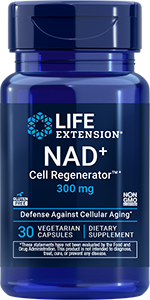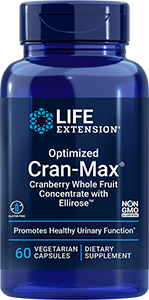
Newsletter
Newsletter
Increasing Your Antioxidant Intake Could Lower Atherosclerosis Marker

Not sure what to have for lunch? If arterial plaque is on your radar, a Mediterranean diet-style salad tossed with extra virgin olive oil may be a better choice than other lower-fat options, suggests a study in the January 2024 issue of Free Radical Biology and Medicine.
Analysis of 805 patients with coronary heart disease who were participants in the Coronary Diet Intervention with Olive Oil and Cardiovascular Prevention (CORDIOPREV) clinical trial revealed a link between higher antioxidant consumption and less narrowing of the common carotid arteries, which provides blood to the head, neck and brain. Plaque deposits are responsible for the narrowing of arteries and are an indicator of atherosclerosis.1
The CORDIOPREV study was created to compare the effects of a Mediterranean diet—which is notably high in antioxidants given its emphasis on fruits, vegetables and other plants—to a low-fat diet in the prevention of cardiovascular events such as heart attacks.
Researchers looked at how much of each of the following antioxidants participants reported consuming:
- Vitamin A
- Carotenoids
- Vitamin C
- Vitamin E
- Selenium
- Zinc
These values were used to calculate the participants’ Dietary Antioxidant Index (DAI) scores, which measure the overall antioxidant capacity of diets. Meanwhile, ultrasounds of the common carotid arteries measured thickness of the intima-media, the innermost lining of the arteries, at the beginning and end of the study.
After five years of consuming the diets, average Dietary Antioxidant Index scores improved among participants who were assigned to a Mediterranean diet while declining among those who consumed a low-fat diet. Those whose increase in Dietary Antioxidant Index scores was among the highest of all participants experienced the greatest five-year decrease in common carotid artery intima-media thickness, which indicates less plaque accumulation.
“The present study findings indicate that after five years of dietary intervention, an improvement in DAI was associated with a long-term (5 years) reduction in intima-media thickness of the common carotids in patients with CHD,” authors Lorenzo Rivas-Garcia and colleagues concluded.
Products
Apply What You’ve Learned: Atherosclerosis
- Atherosclerosis is generally characterized by the buildup of plaque within the arteries, which causes them to narrow. This impairs the delivery of oxygen and nutrients to areas served by these arteries. Plaque buildup in one or more coronary arteries that supply blood to the heart occurs in coronary artery disease.
- Cerebrovascular disease can include narrowing of the carotid or vertebral arteries that supply blood to the brain, bleeding in the brain, stroke and other conditions.
- A carotid intima-media thickness test uses ultrasound to measure the thickness of the two inner layers of the walls of the carotid arteries—a set of vessels that supply blood to the head and brain. A thicker intima-media is a marker of atherosclerosis and may help predict cerebrovascular and cardiovascular events.2
- Being overweight, consuming an unhealthy diet, insufficient physical activity and smoking are lifestyle factors that increase the risk of atherosclerosis.3-6 These risk factors are all modifiable.
- Research suggests that resveratrol, lipoic acid, Ginkgo biloba, Centella asiatica (gotu kola) and Pycnogenol® from French maritime pine bark may help reduce the progression of atherosclerotic plaque.7-10
References
- Rivas-Garcia L et al. Free Radic Biol Med. 2023 Nov 29;210:221-229.
- Nezu T et al. J Atheroscler Thromb. 2016;23(1):18-31.
- Lovren F et al. Can J Cardiol. 2015 Feb;31(2):177-83.
- Torres N et al. Arch Med Res. 2015 Jul;46(5):408-26.
- Mehanna E et al. Curr Atheroscler Rep. 2016 May;18(5):26.
- Siasos G et al. Curr Med Chem. 2014;21(34):3936-48.
- Berbée JFP et al. J Nutr Biochem. 2013 Aug;24(8):1423-30.
- Ying Z et al. Life Sci. 2010 Jan 16;86(3-4):95-102.
- Rodríguez M et al. Atherosclerosis. 2007 Jun;192(2):438-44.
- Belcaro G et al. Minerva Cardioangiol. 2017 Feb;65(1):24-31.
Featured Life Extension Magazine® Article
PQQ and Diabetic Kidney Disease
By Lawrence Harding
Along with the rising prevalence of type 2 diabetes in the United States, there has been a corresponding increase in the incidence of diabetic kidney disease. High glucose levels in the blood damage most of the body’s tissues, including the kidneys.
While people need to do all that they can to control their diabetes, adding pyrroloquinoline quinone (PQQ), a compound found in fruit and vegetables, to one’s anti-aging program has been shown in preclinical research to help protect the kidneys from the damaging effects of poor glucose control.
Read Full Article
What's Hot
Health Concern
High carotene levels associated with lower amount of atherosclerotic plaque
The July 2023 issue of Clinical Nutrition published the finding of a relationship between higher plasma levels of carotene and less atherosclerotic plaque.

Stroke
Nutritional compounds in olives and omega-3 essential fatty acids from fish oil may help support healthy blood flow. Adhering to a Mediterranean dietary pattern is associated with lower stroke risk, as well.
Related Life Extension Magazine® Articles

Atherosclerosis in Sweden: Implications for Americans
A study found that 42% of Swedish study subjects without known heart disease had detectable atherosclerosis. Americans have even greater vascular risks. Low-cost blood tests can detect risk factors for atherosclerosis before major cardiovascular events strike.

Protect Against Occlusive Arterial Plaque
Two plant extracts have been shown to inhibit atherosclerosis and to reduce unstable plaque. In one controlled study, the extract blend led to an 82% reduction in major cardiovascular events, including heart attack and stroke.
Life Extension Magazine® Issue Now Online
A remarkable number of healthy-longevity findings have been published over the past 18 months.
The latest news on aging, nutrition, and vitamins
Health News
Cran-Max® and Bio-Shield® are registered trademarks of Pharmachem Laboratories, Inc. Ellirose™ is a trademark of Naturex, Inc.




